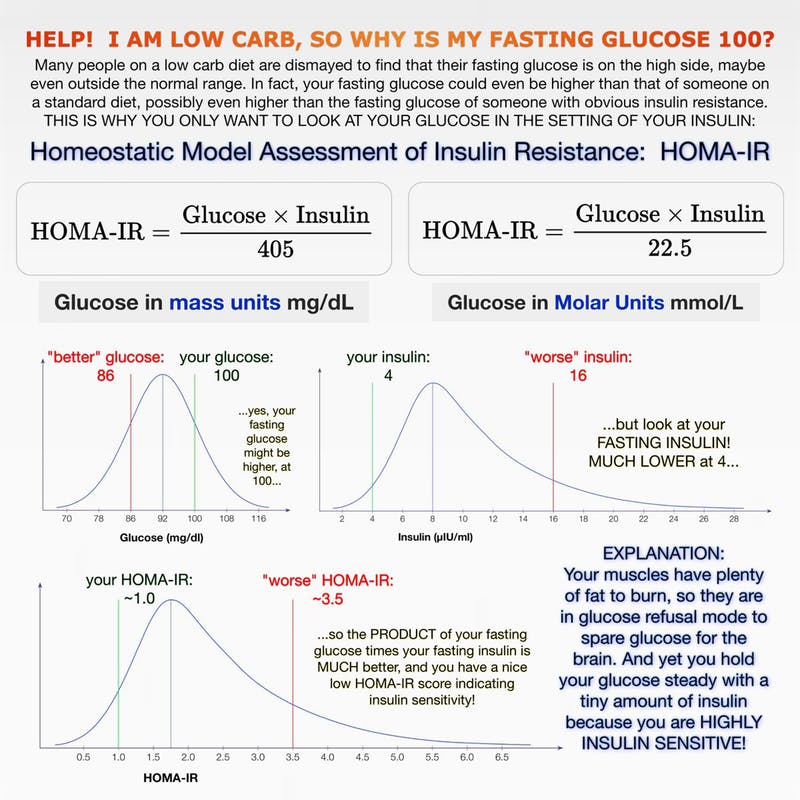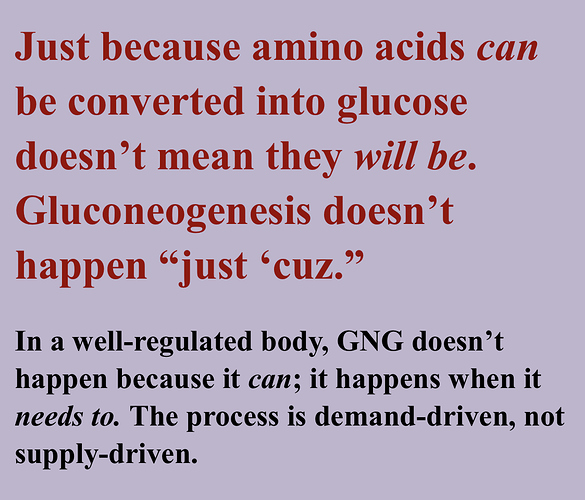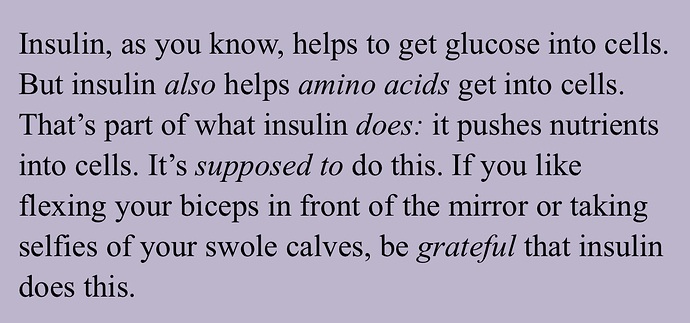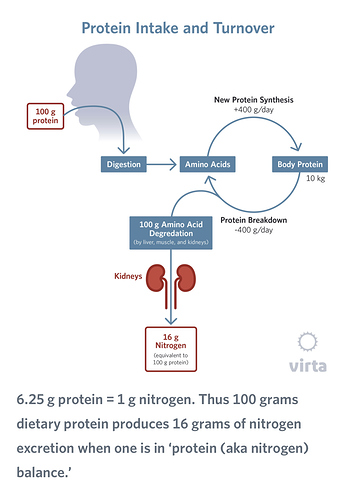Unfortunately, even with a low carbohydrate intake, the body will hang on to fat when it’s in famine mode. The key to fat burning appears to be low carbohydrate in conjunction with an abundance of calories. Trying to manipulate the First Law of Thermodynamics rather than the body’s hormones usually has rebound effects, because the body adjusts metabolism to input.
Manipulating the hormones works a lot better, and is what a low-carb diet is all about. And it brings with it the apparent effect of being able to eat as much as you like, since the caloric deficit is hidden in the appetite regulation. This is one of the effects that makes a keto diet even possible for me, since I have an insuperable mental block against counting calories (not to mention going hungry).
A now-outdated hypothesis, since gluconeogenesis has been shown to be driven by demand, not supply.
You’ve got it, Alec. That, in fact, is the whole point of fat-adaptation. After they become fat-adapted, the muscles actually turn up the opportunity to use ketones, so as to save them for the organs that really need them, the brain and the heart in particular. Moreover, the ketone bodies, β-hydroxybutyrate in particular, have highly beneficial hormonal effects.
Think of fatty acids as being like wood, and ketones as charcoal. Charcoal is an intermediate product of wood combustion, just as ketone bodies are intermediate products of fatty acid metabolism. Charcoal can be further combusted, and ketone bodies can be further metabolized, but they are used a bit differently from how their parent substances are used.
The ketone bodies are still an important part of a low-carbohydrate diet. For one thing, the heart apparently really thrives on β-hydroxybutyrate, because it has (if I got this right) hormonal effects on the heart muscle as well as providing fuel. There is also the brain, which does very well on β-hydroxybutyrate, as well as acetone (under certain circumstances). (Apparently, the brain could metabolize fatty acids—since every mitochondrion in the body is capable of that—but fatty acids can’t pass the blood-brain barrier.)
However, despite these specialized uses of ketone bodies most of the energy that the body uses in ketosis is fatty acids. You could even say “all of it,” in the sense that the ketone bodies produced by the liver could be described as a sort of “pre-digested” fatty acid. But now I’m just playing with the terminology.








 .
.